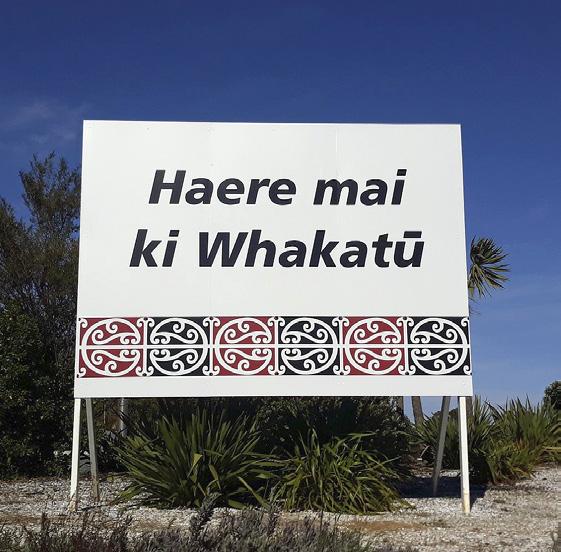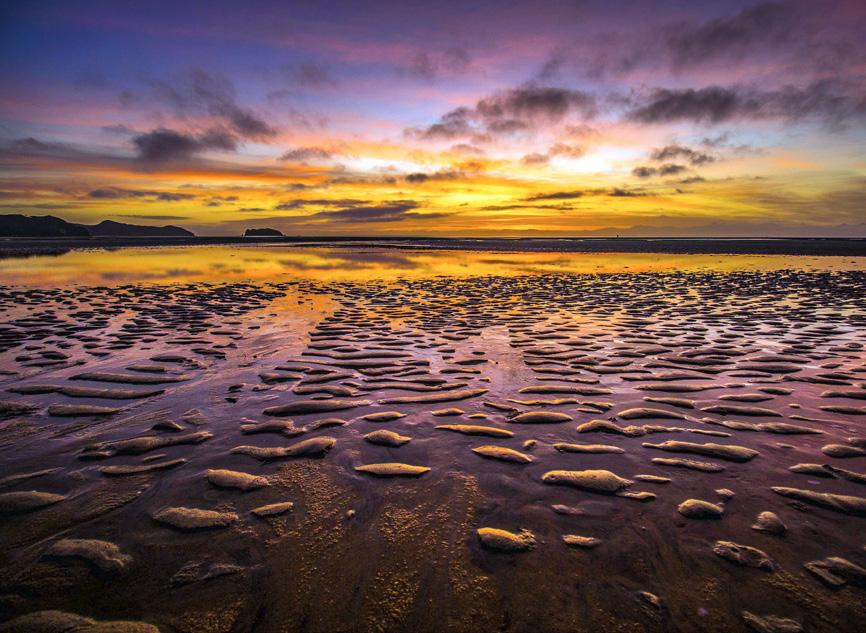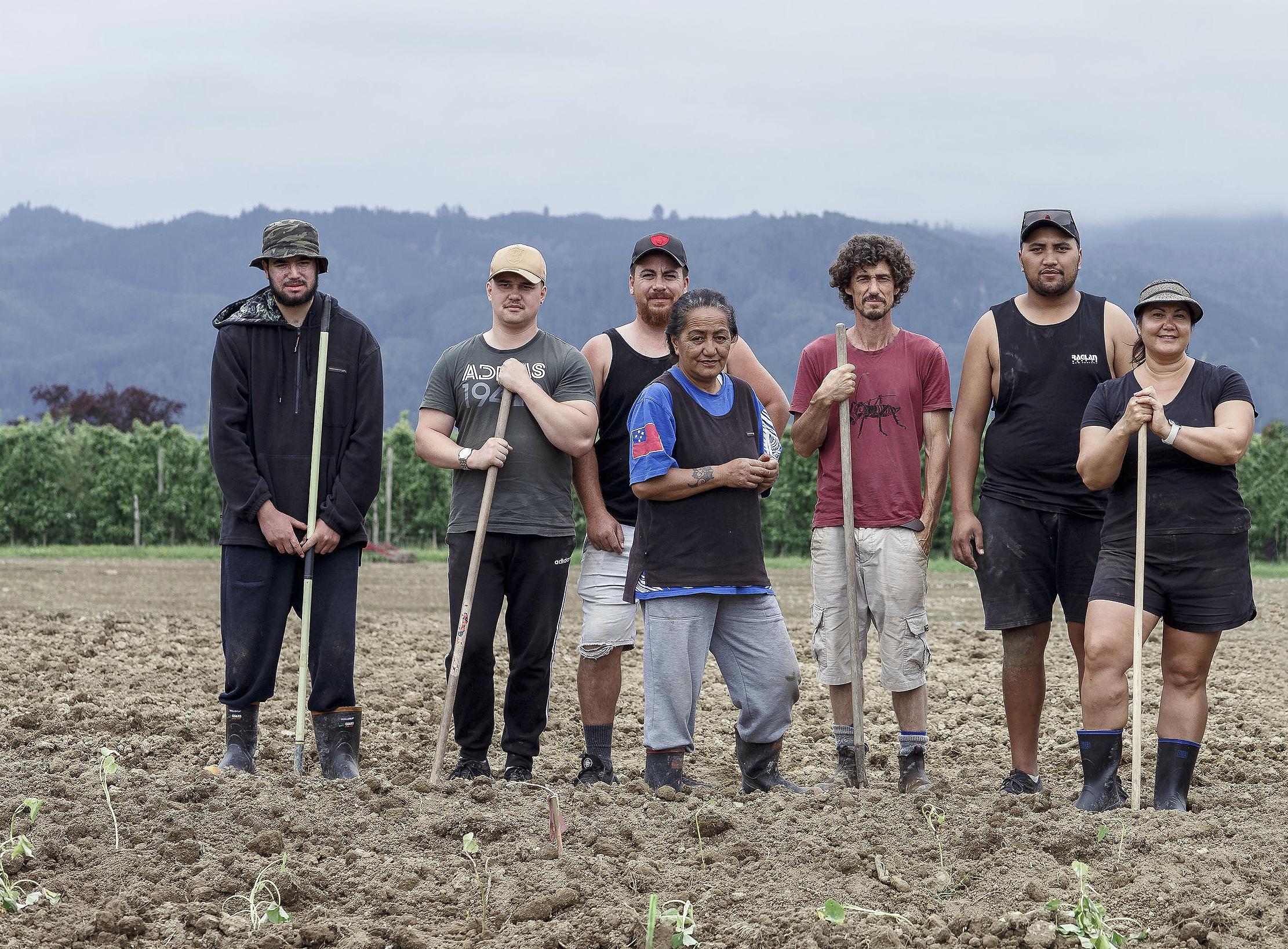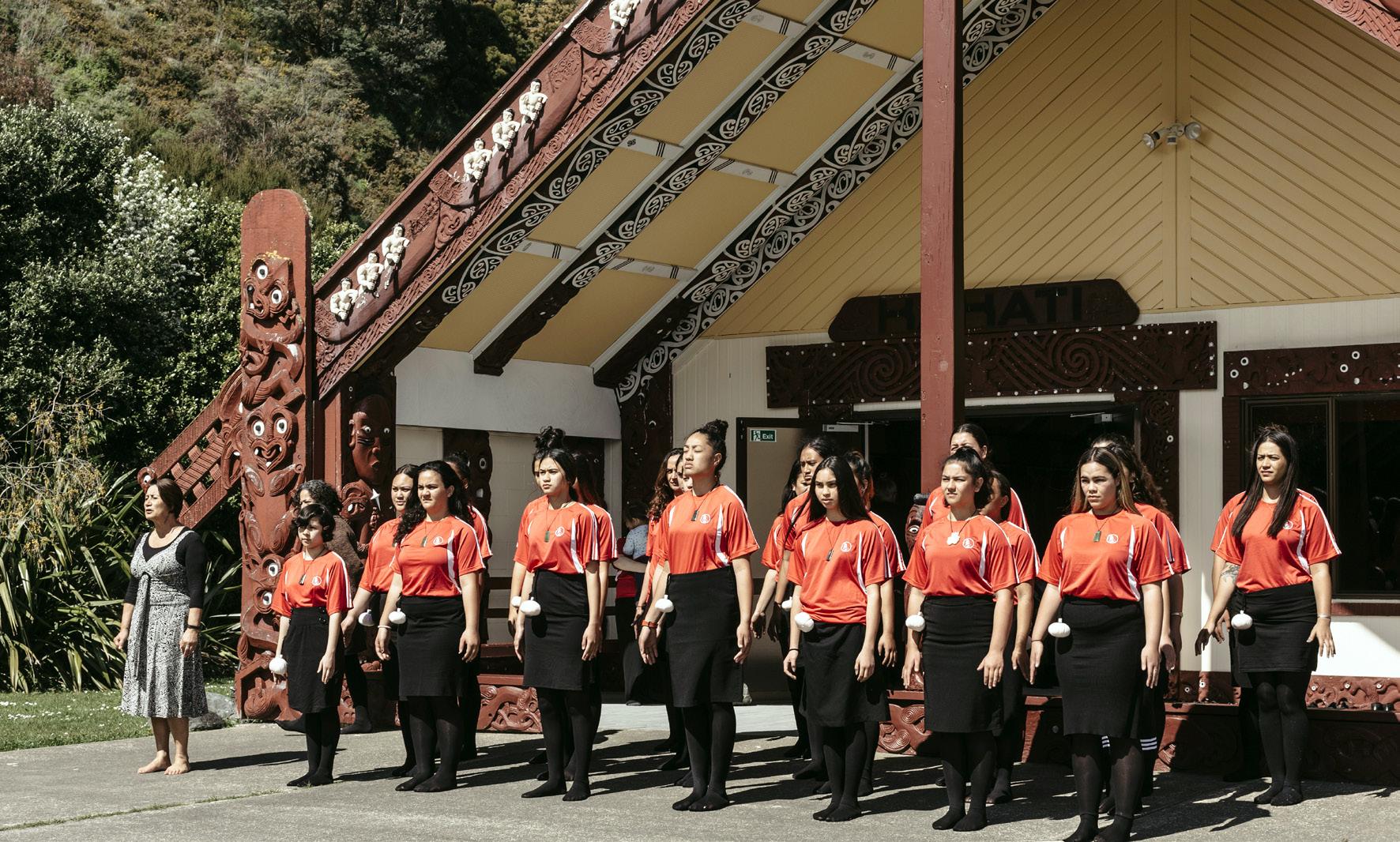
2 minute read
Whakatū & Wakatū
Whakatū & Wakatū — some meanings
Māori place names are steeped in tradition and are at the heart of the Māori land tenure system. However, due to the effects of colonisation, there has been a loss of cultural knowledge around the meanings of some place names.
In the case of Whakatū and Wakatū, the Māori name for Nelson, there are various interpretations, as well as the two different spellings. Whakatū/Wakatū can be explained by dialect – differences in pronunciation/spelling – depending on iwi and region. Iwi affiliated with Tainui use ‘wh’ (Whakatū). Iwi from Taranaki such as Ngāti Tama and Te Ātiawa pronounce it with a soft ‘h’ sound (Wakatū).
Whakatū has multiple meanings including: • to make stand, erect, put up, construct, raise, establish • election, establishment
Waka can mean canoe, and the crew of the canoe
Tū can mean: • to stand, take place, set in place, establish, hold, convene • to be erect, raised • to be rough, high (of the sea)
Some of the rich stories that are associated with Whakatū and Wakatū include:
Wakatū – a waka that has been tossed up. Te Rīrino was one of the great ocean-going waka that was used in the thirteenth-century migrations from Hawaiki. Tradition has it that in sailing to Aotearoa, the navigator Pōtoru decided to take Te Rīrino in a different direction to the other waka, heading te rā tō (towards the setting sun). Despite the sailing skills of Pōtoru, Te Rīrino was caught in a fierce storm and was tossed up on Te Taero a Kereopa or Te Tahuna a Tamai-ea (also known as the Boulder Bank).
Wakatū – a waka that has been stood up. Another tradition says that to mark the final resting place of a chief, Te Māia, his waka was stood up on Te Taero a Kereopa or Te Tahuna a Tama-i-ea.
Whakatū – a place to build. Whakatū to kāinga ki te kōhanga o te mātangi āwhio ‘Build your homes near the nest of the seabirds’. This traditional advice about the best place to settle was said to be given to newcomers to the region by existing residents.
Whakatūwhenua – an illness. There are stories relating to a Ngāi Tahu tupuna, Te Hikutawatawa/Tūāhuriri, and his visits to a Ngāi Tara pā at Waimea (near present-day Appleby School). This complex tale about origins, identity, hospitality and the dangers of breaching tapu, ends with some of the residents of the pā becoming ill and dying. Some attribute the deaths to leprosy, known, among other names, as whakatūwhenua.
Whakatū and Wakatū reflects the traditions, history and culture of the tāngata whenua, the people of the land. While in the region, you may hear more kōrero about the origins of the name. Take the time to listen, learn and understand.
This article is based on research undertaken by Hilary and John Mitchell. For more details, read their book series Te Tau Ihu o Te Waka: A History of Maori of Nelson and Marlborough.










